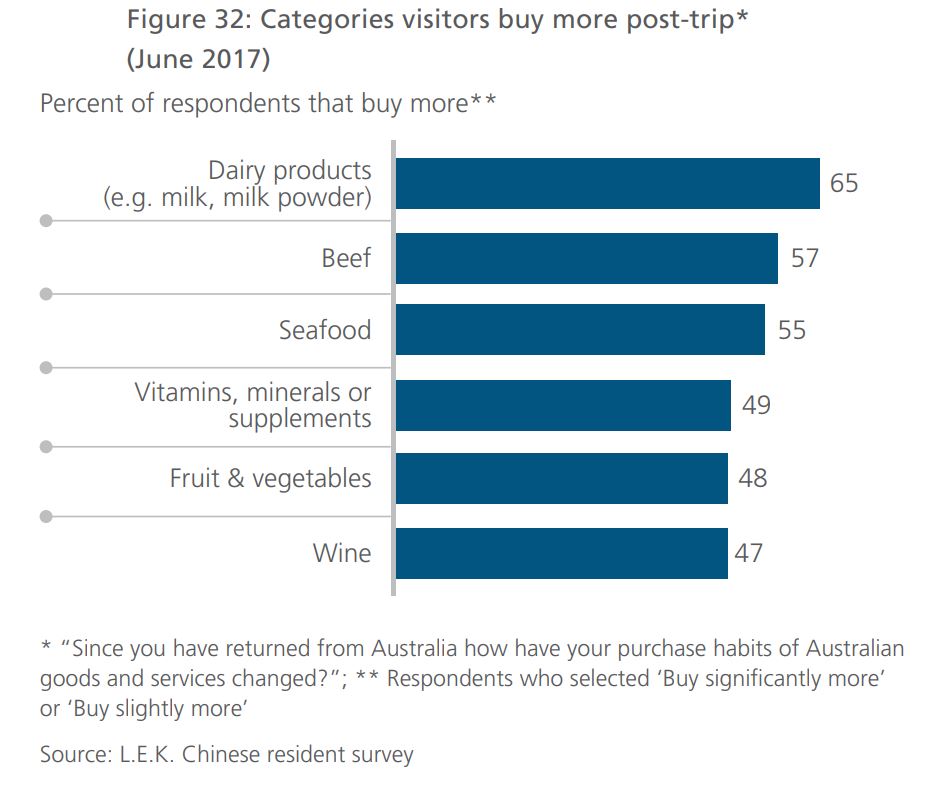
07 Dec Chinese tourism: the gift that keeps on giving
Chinese tourism is an increasingly significant market for Australian businesses
Australia welcomed 1.2 million Chinese visitors in 2016 and this figure is expected to triple over the next ten years. China is already Australia’s largest market for wine and tourism in terms of overall expenditure totaling $9.2 billion in 2016.
LEK Consulting, in conjunction with The Australia China Business Council, recently conducted an analysis of the Chinese tourism market and concluded that the economic footprint of Chinese tourism in Australia is much wider than the impact of the visits themselves. Their 2017 report, The China Tourism Economy: Reaching Australia’s Potential, confirms that nearly 100% of Chinese visitors buy Australian goods on their return to China after their visit here. In addition, they often go on to study, buy property and invest in Australia.
Businesses can tap into this huge market by keeping in mind the typical visitor profile and consumer interests, as well as playing to the strengths of Australia’s current offerings and improving on inadequacies.
The typical Chinese visitor
The majority of Chinese visitors come from Beijing, Shanghai and Guangzhou. Some are family members of resident Chinese students or students themselves. Visitor levels fluctuate throughout the year and peak from January to March.
Australia is loved by the Chinese for its unique natural resources, native animals, indigenous peoples, superior food and wine, shopping and world-class universities. Tourist attractions like the Sydney Fish Market and the friendliness of Australians are generally highly rated.
How do Australian businesses tap into this market?
The Chinese Tourism Economy study highlights some opportunities for Australian businesses to capitalise on this large and growing market:
1. Businesses in related industries should consider offering services that enhance the Chinese student experience such as support services, living arrangements, English tuition, employment pathways, and professional development.
2. There is an urgent unmet need for more tourism infrastructure to accommodate Chinese visitors, so watch out for opportunities throughout the tourism infrastructure and accommodation supply chain as supply catches up with demand.
3. Provide balanced advice about the quality of goods and clearly differentiate between products to clarify the confusion that is known to prevent the Chinese from making Australian purchases. For example, highlighting the differences and unique qualities of various dairy and beef products would make marketing these products more effective.
4. Consider targeted sponsorships of sporting events and cruises, emphasising the healthy and natural aspects of Australia’s image – this has been historically successful for marketing to this sector.
5. Provide information at retail points in Mandarin. Chinese visitors can be smoothly accommodated by providing signage, guides and information in their language and simplifying the administration aspect of travel.
6. Hospitality businesses should consider the idiosyncrasies of Chinese culture – simple adaptations like providing slippers in hotels, extending restaurant opening hours and offering payment facilities such as Alipay and WeChat can prove very effective.
7. Chinese tourists are technologically savvy so it is important to ensure your business’s online presence caters for your Chinese market through your website, app or online channels like Alibaba and Taobao.
8. Developing networks within Australia’s strong Chinese community and forming partnerships with tourism operators can be highly advantageous.
According to the Chinese Tourism report, 90% of Chinese visitors are inspired to invest in an Australian business, so educating your business about Chinese culture and nurturing intercultural partnerships makes sense for many different types of businesses.
As an accountant and advisor specializing in international business for over 75 years, Accru (and many of our clients) turned our sights to China some years ago. Please contact us if you would like to find out more about how we can assist you with your business plans in Australia or throughout the Asia-Pacific.
By Steven Zabeti, Accru Felsers Chartered Accountants.



